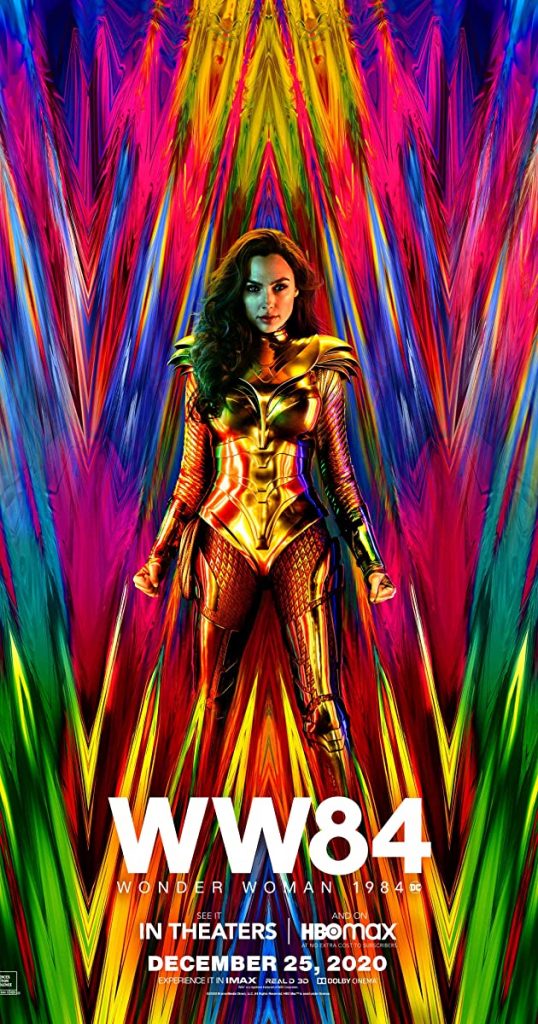
The one thing I found especially striking about Wonder Woman 1984, the follow-up to the 2017 Patty Jenkins-fronted blockbuster (who returns to the director’s chair for this sequel) is how much weird and interesting elements it had that were not related to Wonder Woman specifically. Don’t get it twisted, Gal Gadot as Diana is still appealing, she does go through a heroic arc and develops a bit as a character. But it’s the bizarre story twists that will likely leave the strongest impression on viewers streaming it on HBO Max, a decision brought upon due to pandemic concerns that has the theater industry in a tailspin.
When I compare it to the first one, there’s a couple of aspects I felt the new one improved upon, namely building to a more logical climax. But oddly enough, it’s a reversal because he 2017 movie was much more straightforward in getting to its conclusion, where the final big-bad was a bit too last-minute. This time, the finale makes more sense, and the journey’s more convoluted. But that doesn’t mean there isn’t some fun to be had as you go through the labyrinth.
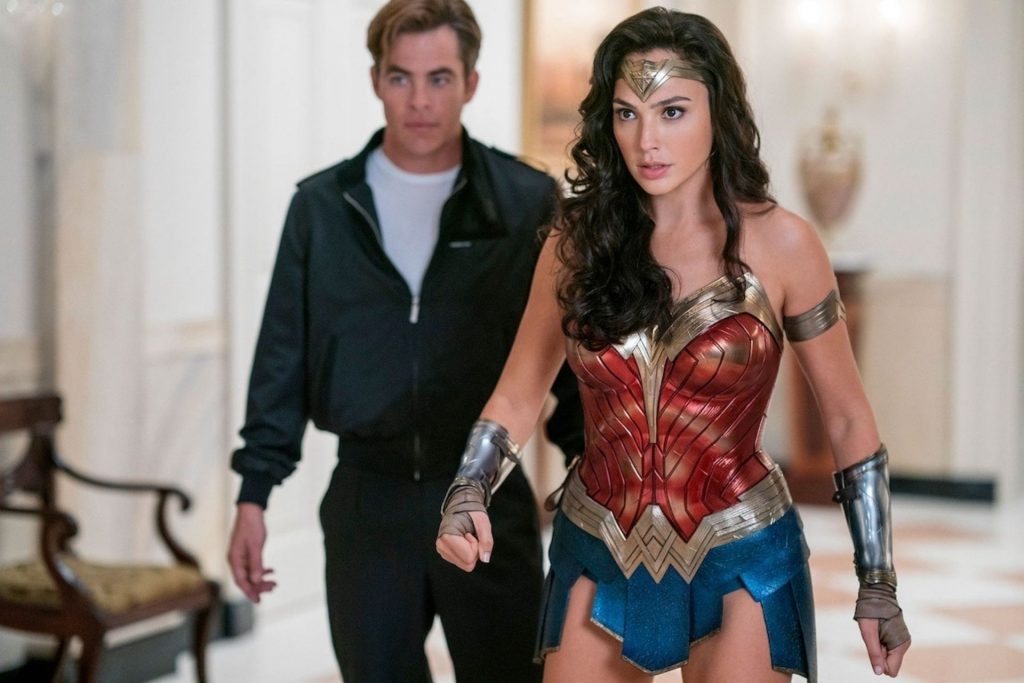
Though the president here is fictional, as the title says it’s very much the middle of the Reagan era, where after saving the world back in WW1, mild-mannered Smithsonian worker Diana Prince befriends the dorky new employee Barbara Ann Minerva (Kristen Wiig), moonlights as Wonder Woman and helps the helpless (a simple headband doesn’t seem to be an effective disguise at first glance, but if it works, it works).
As she rescues some kids at a super-neon shopping mall that gave me some shades of Stranger Things 3’s Starcourt (it did have an Operation: Wolf game in its arcade, which was not released until 1987- but that’s just me being nerdy), the media savvy businessman Maxwell Lord (a pretty flamboyant Pedro Pascal) boasts and promises great tomorrows for those willing to invest in his fledgling oil company.
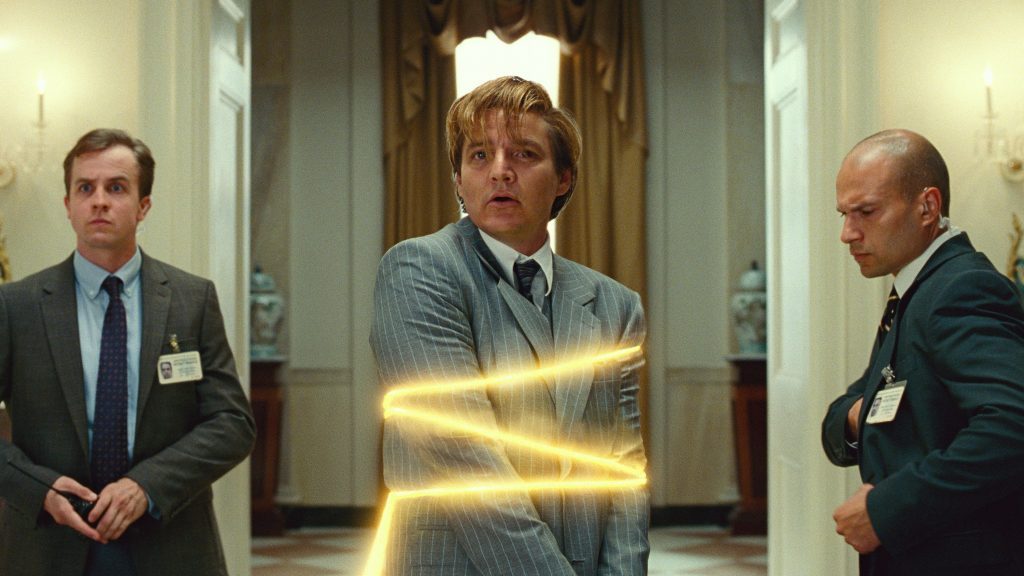
Trouble is, Lord is a huckster who doesn’t have any of the black juice, with angry business partners chewing him out and humiliating him in front of his adopted son, whom he hopes to make proud. His solution is to steal a magical “dream stone” that can grant anyone’s wish, albeit with a Monkey’s Paw clause attached to it. Damn that, he decides, and wishes to literally *fuse* with the artifact to get an unlimited wish cheat code, and he goes on a power-wish rampage. This isn’t before Barbera and Diana have made their own respective wishes that further complicate the situation, respectively for Babs to become as powerful, cool and assertive as Diana is, while Ms. Prince suddenly discovers an old friend’s unexpectedly returned.
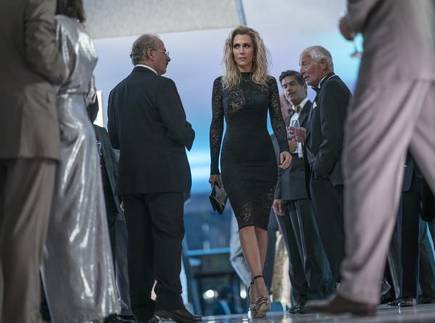
So the dynamic between Gadot’s Diana and Chris Pine as Steve still has that sense of fun (even if they do overdo Steve’s awkward main-out-of-time reactions to the mid 80’s culture), but there’s an odd plot point- of which I won’t spoil- that results in their relationship coming off somewhat uncomfortable, because of the method in which Steve has returned to her like. In fact, there’s a number of loose plot threads in this movie, as well as a variety of different ideas being thrown around that could have extended this film into two a la Infinity War and Endgame.
Like at one point, Lord takes over an oil-rich fictional country in the Middle East- the massive amounts of subtext and potential scripts that could come from that scenario is mind boggling. Maxwell Lord’s character evolution actually gets a good amount of attention, to where one could consider him the most important in the story. Many villains often are but it’s especially noteworthy here, and Pedro Pascal doesn’t waste a single strip of film, giving a very intense performance.
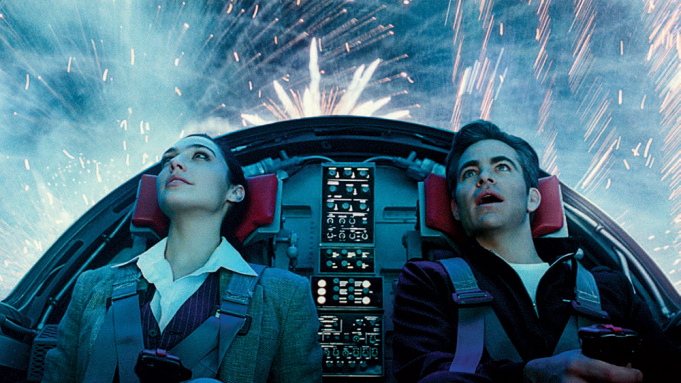
WW84 is pretty much meant to be a warning against the idea of instant gratification, it just goes through a ton of shortcuts and detours to reach this conclusion. I got a kick out of the opening flashback sequence with a young Diana participating in high level Amazonian games, and the film does try to link it to a message of persevering despite not always being able to get what you want. Still, it would have been cool if what we saw on the island affected the eighties’ story a tad more.

I had overall mixed feelings as far as the effects were concerned. At points you’ll get some cool fights and rescue sequences, like the opening which felt very Sam Raimi-ish in its campiness and attempt at old school comic book thrills. At other points, Wonder Woman running down the road will come off too obviously green-screened.
The outfit Wiig sports before her complete transformation into Cheetah is badass enough as it is, but the final makeup job was way too Jellicle Cat for my taste (oh boy, I’m having war flashbacks…) and that fight was kind of clunky. Diana’s metallic wings and armor are damned impressive though, as is the part where Diana and Steve fly the iconic invisible jet for the first time, and Mathew Jensen’s cinematography does a nice job capturing that retro eighties’ vibe.
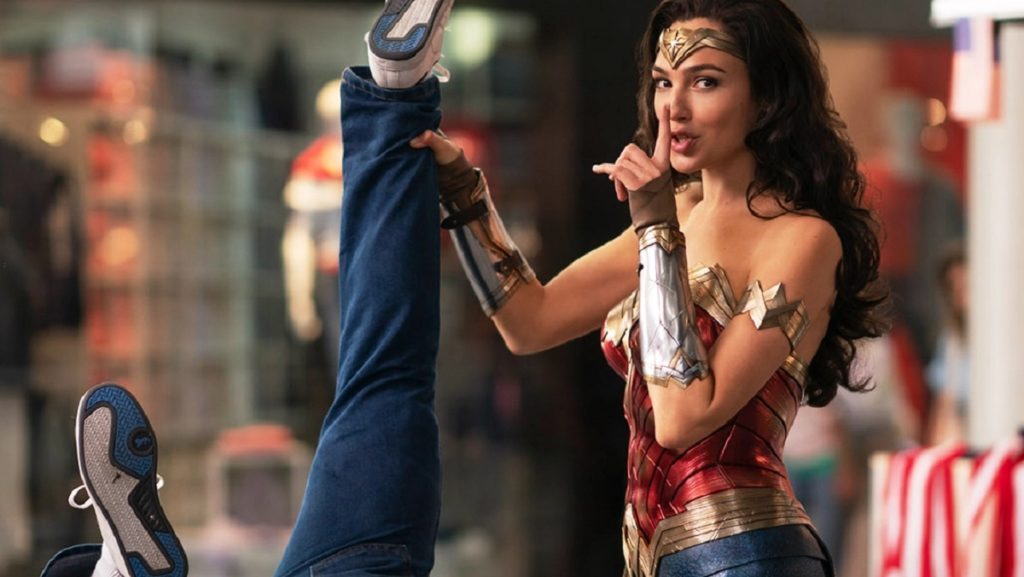
This is a movie full of memorable moments that could have used more cohesion and a few edits. But outside of a couple of oddly stereotypical characters here and there, there isn’t much in Wonder Woman 1984 that should upset or aggressively turn off most WW fans. For the most part, it still accomplishes its goal of presenting Diana as a strong, empathetic hero with a willingness to keep learning how to be a better hero, and Jenkins directs said moments with gusto.
So I can say I did enjoy it, and I’ll definitely recommend it to the DC faithful, but what it needed to ascend to that next-level classic comic movie was a tighter, more streamlined plot. If you’ve checked it out, hop on our social media feeds as always and let us know your take!
